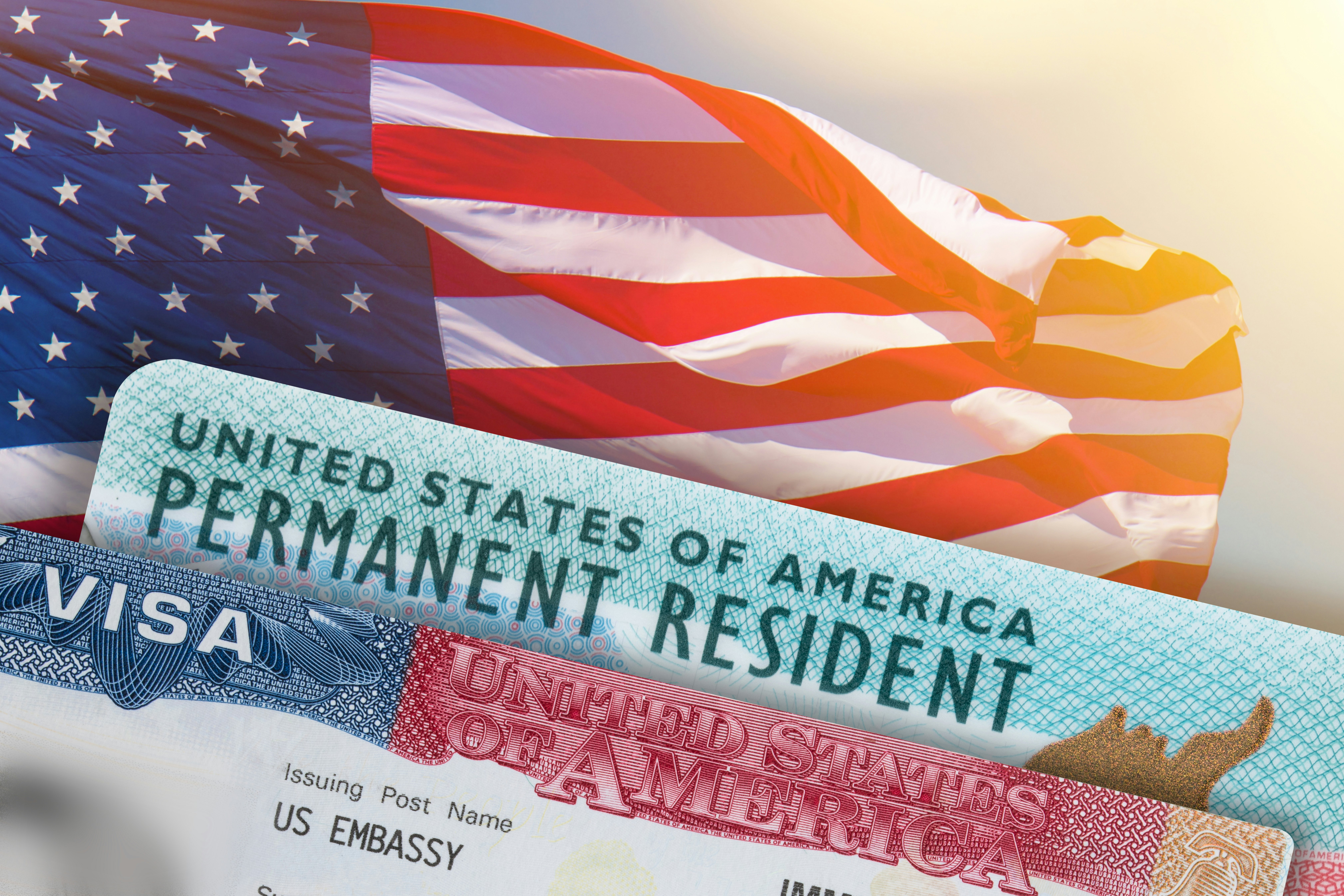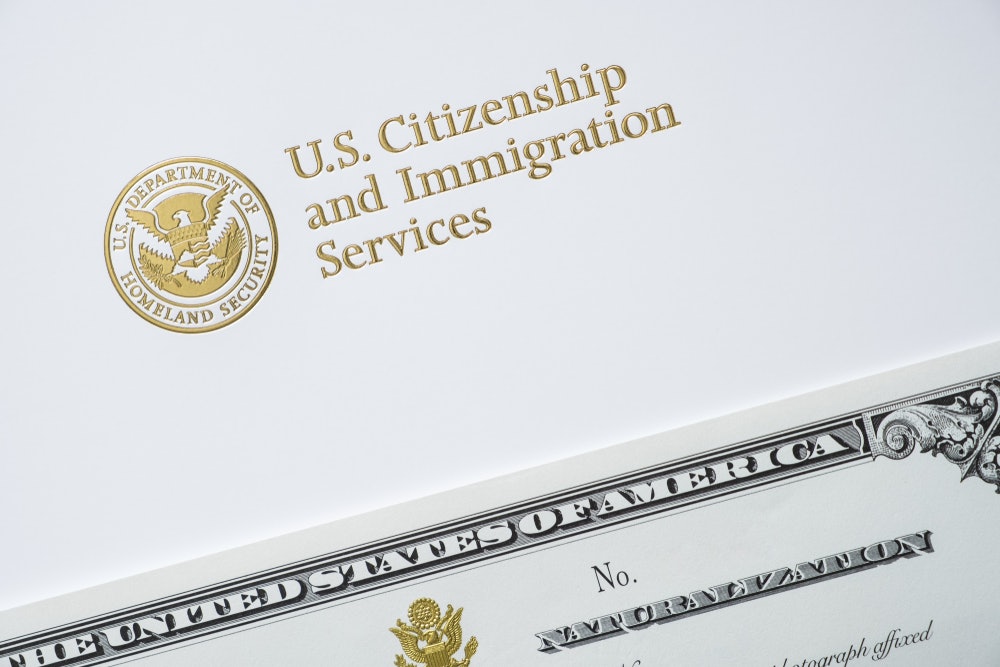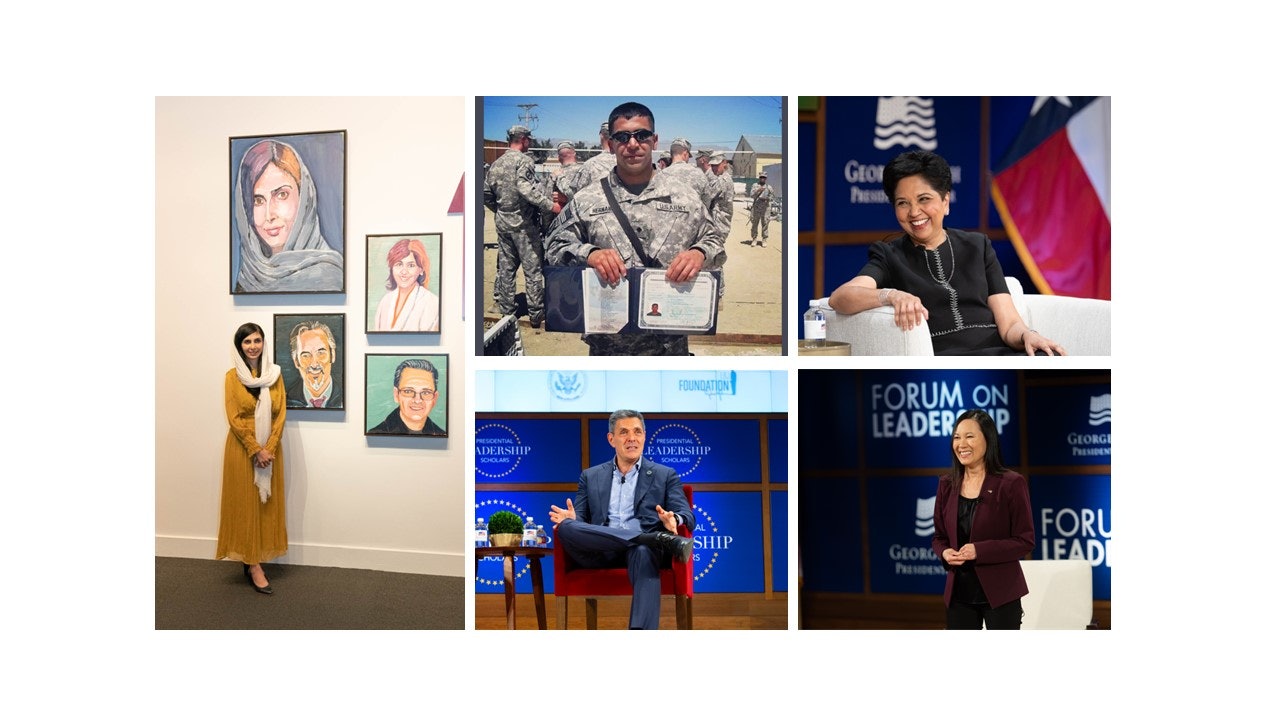On April 18, as part of the launch of his new book, Out of Many, One: Portraits of America’s Immigrants, President Bush was interviewed by Dina Powell McCormick, former White House Advisor, in a special Zoom session for Bush-Cheney Alumni and members of the Bush Center’s 43 Club young professionals’ group. Below are excerpts of that conversation, focused on the questions submitted by BCAers.
Dina: Kim Fuller, who leads our BCA chapter in Southern California, asks what you suggest to citizens of the country on how we can better understand the plight of immigrants. Is there something each of us can do?
President Bush: I think it starts with recognizing and reminding our fellow citizens that we’re all God’s children. And every life is precious. And if you start with that idea, then it makes it much easier to be more sympathetic and compassionate. Now, nobody wants to open our border. That would be foolhardy policy. But I do believe that a compassionate policy is one that recognizes people will take extraordinary risks to come here and therefore there ought to be a quicker way to adjudicate their asylum claims. There’s work that needs to be done and therefore the work visa system, ought to accomplish that so people don’t have to sneak in.
The problem, Kim, right now is that it’s too easy to score political points, and therefore it’s too hard to get something done, and my purpose by elevating the stories such as yours, Dina, is to remind people how fortunate we are to have them in the country and maybe it’ll help kind of tone down some of the hostility, around the issue.
Dina: BCA member Erin Vargo asks, “what are some ways that small business owners can support the integration of legal immigrants into society?”
President Bush: First of all, is to make it clear to the policymakers and the legislators that small businesses rely upon reliable labor. I am a small business owner in that Laura and I own a tree farm on our ranch. We grow live oak, burr oak, cedar elms, red oaks.
By the way, you can’t buy one at a time, Dina, but if you want 100, we’ll ship it to you. But our labor is Mexican labor, because we couldn’t find locals. They come up for 10 months out of a 12-month period and the law has them going back home for two months out of the year and it’s uncertain as to whether or not they can come back in to continue working with us. And as a small business owner asks that question, we’ll tell you if there’s uncertainty in a small business, it creates an enormous risk, and labor uncertainty is a big risk.
Thankfully for the last two cycles, they’ve been let back into the country. I think we need to extend the timeframe of those kind of work visas, so that people don’t have to sneak across the border, so that a father can go home and take money to his child without fear of being arrested, but again it’s all balled up in politics right now.
Dina: Ben Tomchik points out an obvious thing. Immigration has become a pretty hot button. And is there really a path in your opinion, for a policy that, well, you always talk about it you have to have secure borders, you have to have compassion. Yeah, you have to have fairness in the system.
President Bush: I don’t think there’s going to be a comprehensive plan, Ben, there’s too much politics. I do think, though, that Congress can make steps, solving some of the problems and in so doing gain confidence, such as DACA. DACA is the program where a young child is educated in the state of Texas, brought over as a child, educated the state of Texas and now the government is saying you got to go home. The problem is there’s no home to go to.
And it makes no sense. Most Americans understand that DACA should be fixed. They’re productive citizens. Many of them are going to college on our dollar, and why not have them here and help, you know, pay taxes, but that’s an easy fix it seems to me if we could just get some of the politics out of it. Once you get DACA, then you can work on the work visas.
And the other issue of course is going to be, you know what to do with the undocumented people. I happen to believe if they pay taxes, you know, honored the law, were good citizens, that they ought to have a chance to become a citizen not to jump ahead of the line of anybody who is here legally, but they ought to be given a chance to come out of the shadows and get in line. Here’s the problem: All you’ve got to do is scream amnesty. If you talk about DACA and they start screaming amnesty, of course the American people say, “no, they’re going to open the border and we got to have the laws enforced the border.” And my hope is that those of you listening understand that fixing DACA is not amnesty, and that our border can be better secured and must be secured with reform, because right now there’s no reform and the border doesn’t look very secure.
Dina: Kim Widup, who’s a BCA member, asks about the role of governors of border states – something you know a lot about. How much do you think the federal government ought to be listening to them and getting their input on the law?
President Bush: A lot. The governor of Texas knows what’s going on. His people, you know, down there in the valley are talking to him all the time. They ought to be dealing with the governors. One of the great things about our system is that it’s a Federalist system and that means that governors have a much better handle on what’s going on in their respective states than people in Washington. And if, to the extent they have interesting solutions to problems, the federal government ought to listen to them. And whether that can happen in this day and age in this political environment, I don’t know. The system is set up to try innovative things and there’s no question we need some innovation on the border.
Dina: When you picked these 43 immigrants to paint, you chose a number of veterans and those portraits are extraordinary. Isn’t it extraordinary how many immigrants, choose to serve?
President Bush: Yeah – not only that immigrants choose to serve, immigrants have won, non-citizens have won, the Medal of Honor. When people buy this book, they will find a guy named Tony George Bush, so I had to paint him. He was an interpreter. And he volunteered to serve alongside our troops in Baghdad.
And my view was then and still is that if you help U.S. troops in combat, you ought to be given an automatic path to citizenship. And he took advantage of it and when they said, what shall you be called, he said, “Tony George Bush.”
“There’s a Medal of Honor winner in here, Flo Groberg, who’s, from France. And I’ll never forget going to Bethesda, and visiting a Marine, a non-U.S. citizen. And he was injured badly, and I watched him get sworn in as a U.S. citizen. It’s just awesome that somebody would be willing to make that sacrifice. And, you know, when I go to these naturalization ceremonies. I love to stand next to a newly minted American citizen in a U.S. uniform.
It sends a signal to our fellow citizens. There are people who are willing to serve in combat, even though they may not be a citizen. Aren’t these the kind of people we want as citizens in our country?
Bonus Question:
Dina: Our friend Jeannie Mamo wants to go back to your painting career. Do you prefer oil painting to other paints, and if you ever plan to do a book with watercolors?
President Bush: No, Jeannie, I do not plan on doing a book with watercolor, because, well you gotta be a damn good painter to do a book of watercolors. Secondly, I’ve tried to do some watercolors, but it doesn’t fit with my kind of sloppy painting style. I tried acrylics, Jeannie. I’ve been experimenting with some coal wax and oils, but I really like oil painting. I like the thickness of oil painting. I like when you make a mistake you just scrape it off and start over.






























